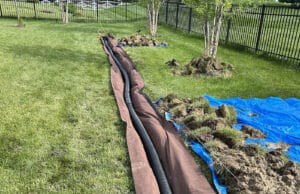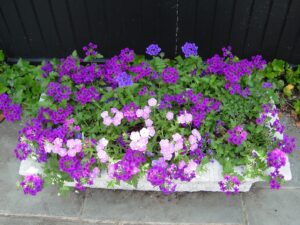Sustainable Solutions for Modern Infrastructure
In the quest for sustainable and environmentally friendly construction solutions, permeable pavers have emerged as a groundbreaking option. These innovative paving systems offer numerous benefits, ranging from environmental conservation to improved urban planning. This article explores the advantages and diverse use cases of permeable pavers, highlighting their growing importance in modern infrastructure.What Are Permeable Pavers?
Permeable pavers, also known as porous or pervious pavers, are specially designed paving materials that allow water to pass through their surface. Unlike traditional impermeable surfaces, such as asphalt or concrete, permeable pavers facilitate natural water infiltration, reducing runoff and promoting groundwater recharge. They typically consist of a durable surface layer with void spaces that allow water to flow through and a subsurface layer that aids in filtration and storage.Benefits of Permeable Pavers
- Stormwater Management
- Reduction of Runoff: Permeable pavers help mitigate the risk of flooding by reducing surface runoff. Rainwater is absorbed into the ground, decreasing the burden on stormwater systems.
- Pollution Control: As water filters through the pavers, pollutants such as oils, heavy metals, and sediments are trapped and naturally filtered, leading to cleaner water entering the groundwater system.
- Environmental Conservation
- Groundwater Recharge: By allowing water to infiltrate the soil, permeable pavers contribute to replenishing groundwater levels, essential for maintaining a healthy water table.
- Heat Island Effect Reduction: Permeable pavers can help reduce the urban heat island effect. Their porous nature allows for better air circulation and cooling, unlike traditional heat-retaining pavements.
- Economic Benefits
- Reduced Infrastructure Costs: Implementing permeable pavers can lead to savings on stormwater management infrastructure. The need for extensive drainage systems and retention ponds is minimized.
- Longevity and Durability: Permeable pavers are designed to withstand heavy loads and adverse weather conditions, offering a long-lasting and low-maintenance solution.
- Aesthetic and Functional Flexibility
- Versatile Design Options: Available in various colors, shapes, and sizes, permeable pavers can complement diverse architectural styles and landscape designs.
- Enhanced Safety: The textured surface of permeable pavers provides better traction, reducing the risk of slips and falls, especially in wet conditions.
Use Cases of Permeable Pavers
- Residential Applications
- Driveways and Walkways: Homeowners can use permeable pavers to create attractive and functional driveways and walkways that manage stormwater efficiently.
- Patios and Outdoor Living Spaces: These pavers are ideal for constructing patios and outdoor areas, blending aesthetic appeal with environmental benefits.
- Commercial and Public Spaces
- Parking Lots: Commercial establishments and public facilities can install permeable pavers in parking areas to handle heavy traffic while managing runoff and reducing puddling.
- Plazas and Courtyards: Urban planners can use permeable pavers to design attractive and sustainable public plazas and courtyards that facilitate pedestrian movement and water management.
- Infrastructure and Urban Development
- Roads and Streets: Municipalities can integrate permeable pavers into road construction projects to improve drainage, reduce flooding, and enhance urban resilience.
- Green Roofs and Walls: Permeable pavers can be incorporated into green roof and wall designs, promoting better water management and adding to the green infrastructure.
- Environmental Projects
- Rain Gardens and Bioswales: Permeable pavers are perfect for creating rain gardens and bioswales that filter and absorb runoff, supporting biodiversity and enhancing urban ecosystems.
- Erosion Control: In areas prone to erosion, permeable pavers can stabilize the soil, reducing erosion and sedimentation in nearby water bodies.







